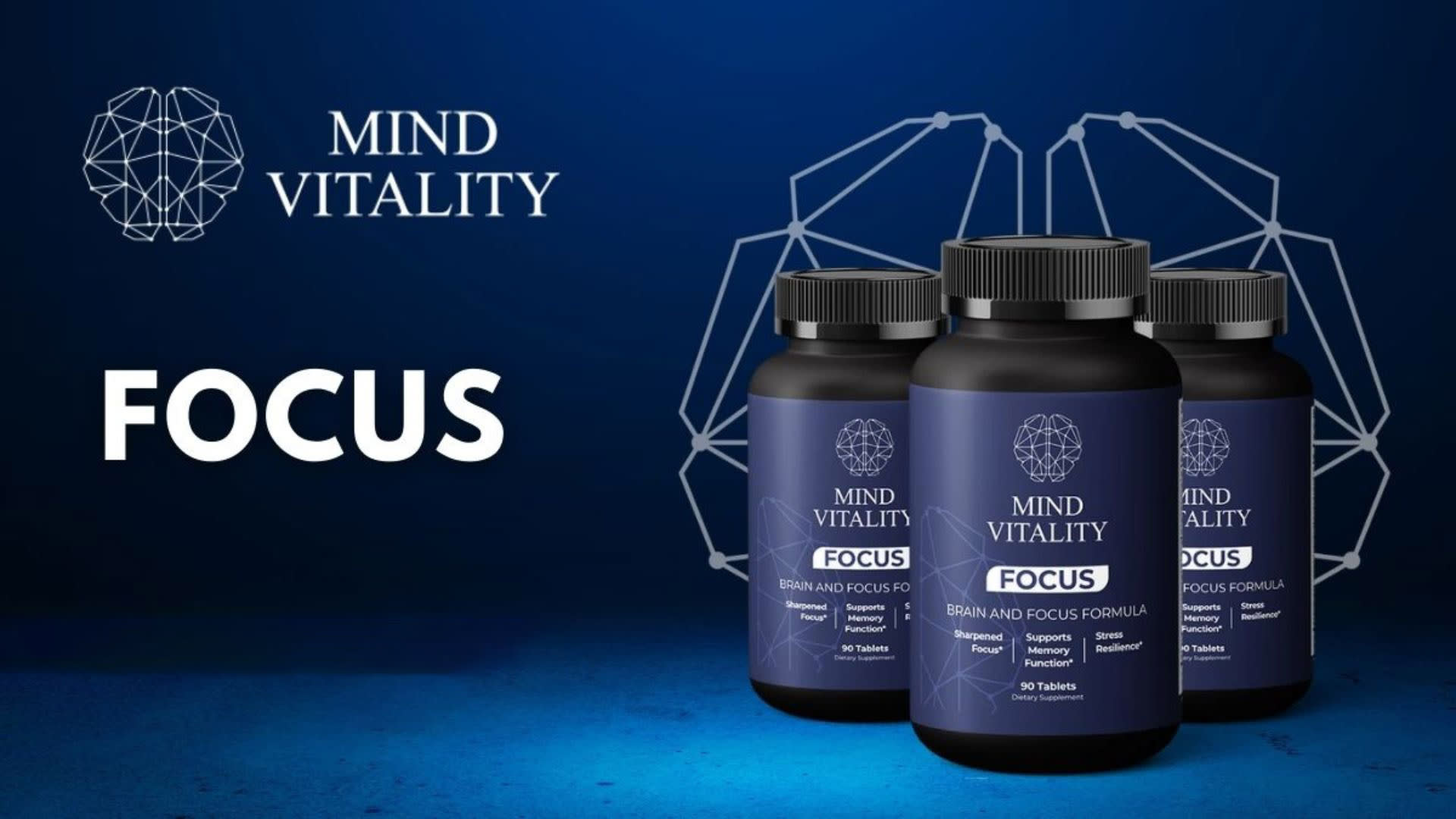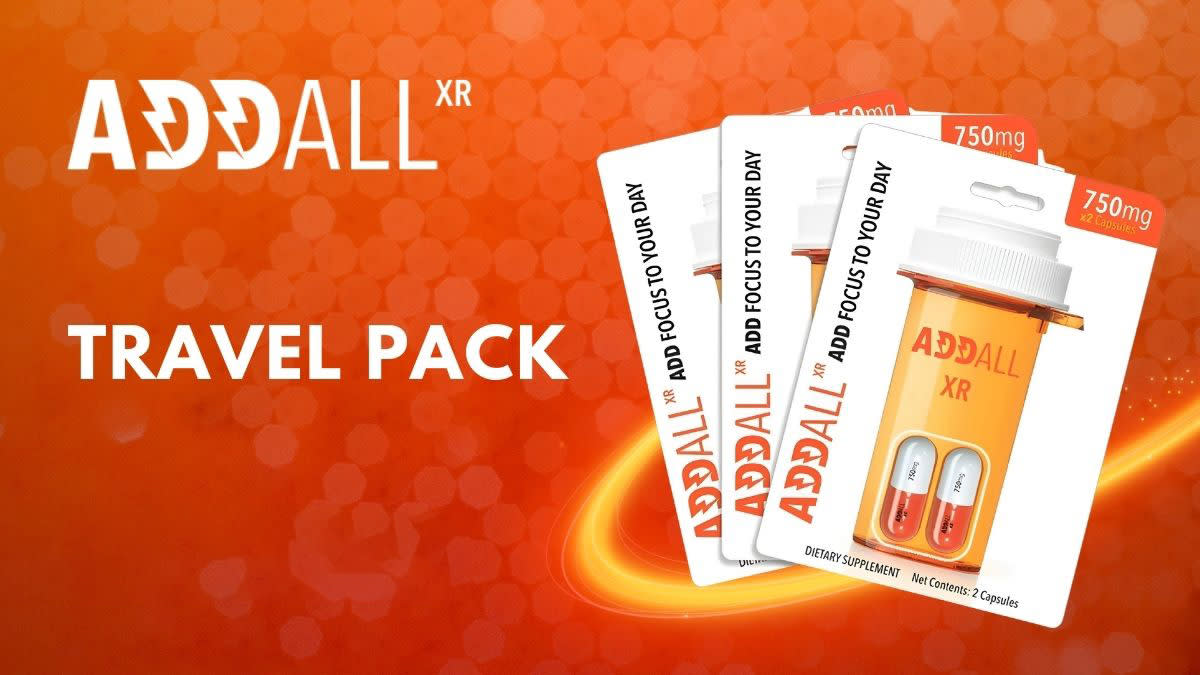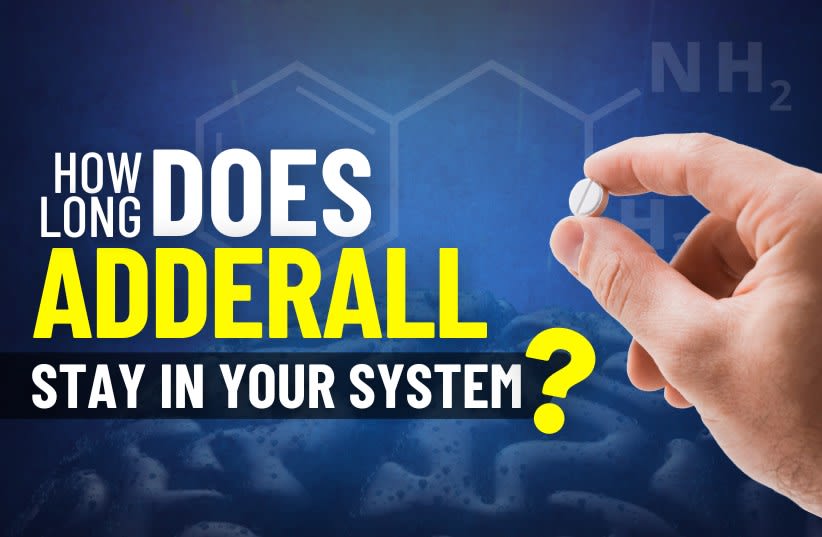Plan on taking Adderall for ADHD or narcolepsy? Then, you must be wondering: “How long does Adderall stay in your system?”
Knowing how many hours it takes your body to clear this widely prescribed medication gives you a better chance of passing a drug test. Depending on the test, the detection window for Adderall is anywhere from 12 hours to 90 days.
But if you want to learn all the details, our guide will walk you through Adderall’s definition, half-life, detection time, and the factors that affect it. You will also learn about natural but effective alternatives like MindVitality.
What Is Adderall?
Adderall is a kind of prescription medication that includes a combo of two stimulants that target your central nervous system—dextroamphetamine and amphetamine. It’s usually used to treat ADHD (Attention Deficit Hyperactivity Disorder), as well as narcolepsy [1].
By raising the levels of some neurotransmitters in your brain, Adderall aims to level up your attention, sharpen your focus, and give you better impulse control.
There are two kinds of these meds: the first one is immediate-release (a.k.a. IR), while the second is extended-release (or XR for short).
Immediate-Release (IR) vs. Extended-Release (XR) Adderall
IR Adderall is designed to take effect almost right away after you pop that orange pill. Usually, it kicks in and starts working within 30 minutes to an hour. If you go for the IR variant, it may last between 4 to 6 hours.
IR Adderall is often prescribed to folks who need relief from symptoms throughout the day (as well as those who need flexibility in dosing).
On the other hand, XR Adderall is formulated to work longer, so you only need to take it once a day. How long does Adderall XR stay in your system? It releases the medication gradually over time, allowing it to provide sustained symptom control for as long as 12 hours.
This extended duration makes it a great choice for persons who need continuous coverage of their symptoms but without having to take it several times throughout the day.
So, which one would be the right pick for you? Well, picking between IR and XR Adderall depends on what your treatment goals and lifestyle preferences are, as well as how mild or severe your symptoms are.
Your healthcare provider can help you determine which Adderall formulation is best for you based on your needs and circumstances.
The Science Behind How Adderall Works
Knowing how Adderall affects your brain and body can help you understand how it treats ADHD and narcolepsy. Let’s talk about its impact on brain chemistry and the metabolism process, as well as how this influences its effectiveness and how long Adderall stays in your system.
Adderall’s Effect on the Brain
Adderall stimulates the activity of neurotransmitters—like dopamine and norepinephrine—in your brain. Dopamine is usually associated with pleasure, attention, and movement, while norepinephrine affects your alertness and energy.
By boosting these chemicals, Adderall may help improve your impulse control, attention, and focus, which is why it has the potential to alleviate ADHD symptoms.
The Role of Metabolism in Drug Processing
Your metabolism plays a big role in how Adderall is processed in your body. After taking Adderall, the drug is absorbed into your bloodstream and transported to your liver. Your liver breaks down this medication into various metabolites, which are then flushed out through the kidneys.
How fast and efficient this process is will depend on how old (or young) you are, as well as your current health status and metabolic rate.
What Is Adderall’s Half-Life?
Adderall's half-life—a.k.a. the time that elapses before your body gets rid of half the compound—is about 9 to 14 hours. In a nutshell, half-life refers to the amount of time for the concentration of this prescription drug in your blood to be cut down by half.
How Long Does Adderall Stay in Your System for Drug Tests?
The detection window for Adderall varies based on the test you take:
- Blood Tests: Detectable for 12 to 24 hours after use
- Urine Tests: Between 48 to 72 hours after using it
- Saliva Tests: As long as 48 hours from the time you took the pill
- Hair Tests: Maximum of 90 days after your most recent dose
How Long Does Adderall Stay in Your System for You to See the Effects?
The effects of Adderall usually last from 4 to 12 hours—depending on whether it’s an immediate or extended-release formulation. However, the drug itself could last in your body longer.
Factors Influencing How Long Adderall Stays in Your System
It’s vital to understand the aspects that impact its duration in your body to make sure that you make the right conjecture and give yourself the highest probability of passing your drug test. Here are the key factors:
- Dosage: Higher doses of Adderall take longer to clear from your body compared to lower doses. For example, the duration that 5mg of Adderall stays in your system will be longer than the duration of a 2.5mg dose.
- Age and One’s Health Condition: Younger folks and those with healthy liver and kidney functions tend to metabolize Adderall faster than older adults or those with health issues.
- Frequency of Use: If you take Adderall often, it can build up in your body, so a test might detect it for a longer period than if you only use it occasionally.
- Metabolism: Finally, your unique metabolic rate can affect how quickly Adderall is processed and flushed out of your system.
How to Detect Adderall Presence in Your System
Learn more about the various testing methods that show the presence of Adderall in your body.
Blood Tests
Blood tests aren’t commonly used for routine drug screening. That’s because they are more invasive and have a shorter detection window than other methods (like urine or hair tests). However, they can be useful in certain situations, especially when the recent use of Adderall needs to be confirmed.
Urine Tests
This is the most common method for detecting Adderall. Thanks to its longer detection window and non-invasive nature, urine testing is frequently used in employment screenings and medical evaluations to check for recent Adderall use.
Saliva Tests
Saliva tests are less invasive than blood tests and can be easily administered, making them a convenient option for checking recent Adderall use. However, their shorter detection window—compared to urine and hair tests—limits their use in some situations.
Hair Tests
Hair tests can pinpoint Adderall for a much longer period compared to other kinds of tests. They often involve taking a small sample of hair (usually from your scalp) and analyzing it for the presence of drug metabolites. This method is useful for assessing long-term use or patterns of drug use over an extended period.
Can You Detoxify Adderall From the System?
There’s actually no quick method to get rid of Adderall from your body. However, staying hydrated, sticking to a healthy diet, and exercising regularly can help support your body's natural detoxification processes.
Side Effects and Risks of Long-Term Adderall Use
If you use Adderall for a long time, this might lead to side effects, such as:
- Insomnia
- Weight loss
- Cardiovascular issues
- Psychological problems (like anxiety and dependence)
It’s not a good idea to use Adderall in case you’re a pregnant or breastfeeding mom. Even more importantly, make sure you have a prescription from your doctor before you take this medication to confirm that it’s safe to use.
Is Adderall Addictive?
Yes, Adderall has a high potential to lead to addiction—especially if you take higher doses or use it without a prescription. That’s why it’s crucial that you follow your doctor’s instructions and avoid misusing it.
Alternatives to Adderall
If you prefer using supplements to prescription medications, it’s worth checking out these natural Adderall alternatives.
1. Mind Vitality

MindVitality is a nootropic that helps you pay attention and concentrate on your tasks better. This supplement helps to get rid of “brain fog” so you can think more clearly. It packs natural ingredients that improve your brain health—including ginkgo biloba, bacopa monnieri, and pine extract that boosts your attention and mental performance [2].
One Reddit user shares on r/LifeCapsule that Mind Vitality helps him focus on his tasks and power through projects without getting distracted.
2. Addall XR

With a very similar name to the ADHD medication Adderall, it’s not surprising that Addall XR is designed as a natural substitute for Adderall. Aside from giving you extra energy, it also aims to enhance your mental concentration. The pills in the orange container come with 1-amino-2 phenylethane, 2-amino-6-methylheptane, and gamma-aminobutyric acid [3].
In a discussion on r/Drugs, some Reddit participants agree that they prefer Addall XR (the supplement) to Adderall (the prescription medication).
3. Noocube

Noocube’s all-purpose nootropic improves brain productivity by covering various areas of cognitive function, such as memory, mental alertness, and listening skills. This supplement combines natural ingredients, such as lutemax, panax ginseng, and l-tyrosine, to enhance the performance of your working memory [4].
A Reddit commenter on r/adhdwomen relays that Noocube gave a subtle boost to her focus and mental clarity without the jitters.
4. Hunter Focus
Hunter Focus is another supplement that motivates you to focus and be more creative in solving tough problems. Its formula showcases herbal extracts, including Spanish sage, rhodiola rosea, and ginkgo biloba, that encourage more blood flow to your brain to prevent cognitive decline [5].
In r/StackAdvice, several Reddit users are of the strong opinion that Hunter Focus has potential benefits as a nootropic.
5. Neuro Gum
Do you prefer chewing gum to swallowing pills? Neuro Gum is a nootropic in convenient gum form. It includes natural ingredients that energize your body while sharpening your focus.
Some of its ingredients are natural caffeine, vitamins B6 and B12, and l-theanine, which may improve your attention and working memory [6].
Some Reddit commenters on r/Biohackers say that Neuro Gum gives them a good boost of energy when they’re on the go.
FAQs About Adderall
Take a peek at our short but sweet answers to some popular questions about how long Adderall remains in your body.
Can Adderall Cause a Positive Drug Test Result?
Yes, Adderall may cause a positive drug test result. Since it contains amphetamine, drug tests for work application or other purposes might detect its presence. That’s why you should openly disclose any prescription medications you’re taking before undergoing a drug test.
How Long Does 20mg of Adderall Last?
A 20mg dose of Adderall typically lasts about 4 to 6 hours for immediate-release forms and up to 12 hours for extended-release forms. If you’re still interested in how long Adderall stays in your system, Quora and Reddit can give you more insights into the real-life experiences of actual Adderall users.
Does Adderall Lose Effectiveness Over Time?
Adderall might grow less effective over time since you may develop tolerance. Talk to your doctor if you notice that this medication no longer helps you as much as it used to.
How Long Does Adderall Stay in Your System: Conclusion
Knowing the duration of Adderall in your body is vital for both medical management of ADHD or narcolepsy as well as navigating drug testing scenarios.
At this point, we’ve already answered how long does Adderall stay in your system and for how long it remains detectable in urine, blood, saliva, or hair tests. Our guide was also aimed at helping you understand the differences between immediate-release and extended-release formulations and natural alternatives such as MindVitality.
Whatever you decide to go with, don’t forget to consult with your doctor first.
References
- Fitzgerald, K. T., & Bronstein, A. C. (2013). Adderall® (amphetamine-dextroamphetamine) toxicity. Topics in Companion Animal Medicine, 28(1), 2–7. https://doi.org/10.1053/j.tcam.2013.03.002
- Belcaro, G., Luzzi, R., Dugall, M., Ippolito, E., & Saggino, A. (2014). Pycnogenol® improves cognitive function, attention, mental performance and specific professional skills in healthy professionals aged 35-55. Journal of Neurosurgical Sciences, 58(4), 239–248. https://pubmed.ncbi.nlm.nih.gov/24675223/
- Hepsomali, P., Groeger, J. A., Nishihira, J., & Scholey, A. (2020). Effects of Oral Gamma-Aminobutyric Acid (GABA) Administration on Stress and Sleep in Humans: A Systematic Review. Frontiers in Neuroscience, 14. https://doi.org/10.3389/fnins.2020.00923
- Bloemendaal, M., Froböse, M. I., Wegman, J., Zandbelt, B. B., van de Rest, O., Cools, R., & Aarts, E. (2018). Neuro-Cognitive Effects of Acute Tyrosine Administration on Reactive and Proactive Response Inhibition in Healthy Older Adults. Eneuro, 5(2), ENEURO.0035-17.2018. https://doi.org/10.1523/eneuro.0035-17.2018
- Mashayekh, A., Pham, D. L., Yousem, D. M., Dizon, M., Barker, P. B., & Lin, D. D. M. (2010). Effects of Ginkgo biloba on cerebral blood flow assessed by quantitative MR perfusion imaging: a pilot study. Neuroradiology, 53(3), 185–191. https://doi.org/10.1007/s00234-010-0790-6
- Baba, Y., Inagaki, S., Nakagawa, S., Kaneko, T., Kobayashi, M., & Takihara, T. (2021). Effects of l-Theanine on Cognitive Function in Middle-Aged and Older Subjects: A Randomized Placebo-Controlled Study. Journal of Medicinal Food, 24(4), 333–341. https://doi.org/10.1089/jmf.2020.4803
